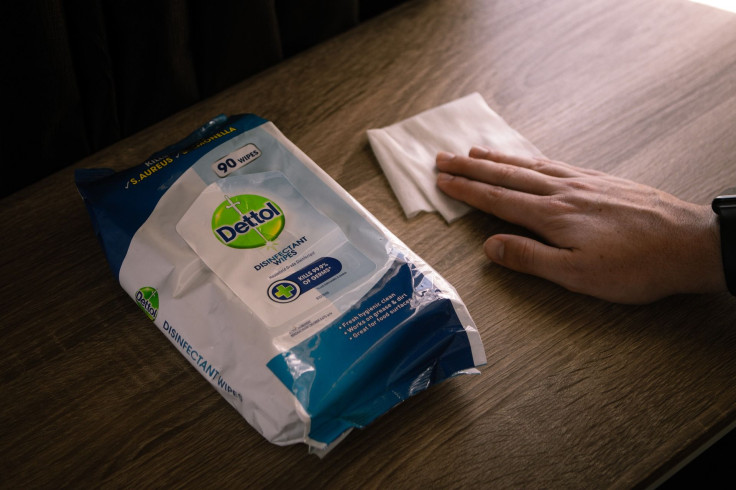Coronavirus Update: Americans Gargling With Bleach, Misusing Disinfectants To Fight COVID-19
KEY POINTS
- Americans are misusing disinfectants and cleaning agents in hopes of preventing COVID-19
- An uptick in poison control calls and reports of high-risk practices came after President Donald Trump made remarks about injecting bleach
- CDC noted the relation between "large knowledge gaps" and people's understanding of how to safely prepare household disinfectants
Americans are reportedly gargling with bleach and putting it on food to fight COVID-19.
The apparent misuse of household cleaners sparked an uptick in poison control calls around the country. According to the Centers for Disease Control and Prevention (CDC), Some Americans believe that the use of household cleaners can help stave off the coronavirus, leading them to mishandle these products in ways that are far from their recommended usage.
Reports of the rise in these high-risk practices and poison control calls followed after President Donald Trump made remarks about injecting bleach, People reported. The CDC conducted an online survey in May, asking 502 adult participants how they have been using disinfecting products throughout the pandemic.
Learn more about safe cleanup of #flood affected areas: https://t.co/mqYy2TSYYW #Cristobal pic.twitter.com/BAwbwC1KfY
— CDC Environment (@CDCEnvironment) June 8, 2020
Data results showed that 39% of respondents claimed to have misused the household disinfectant products. Within the recorded particulars, 19% of respondents claimed to have used bleach to clean their food, while 18% said they used household cleaners and disinfectants to wash their hands and body.
Meanwhile, 4% had admitted to drinking and gargling “diluted bleach” in an attempt to sterilize themselves.
Consequently, surveyed data identified a number of “large knowledge gaps and high-risk practices” which closely correlated to people’s understanding of the safe preparation of household cleaning solutions.
CDC underscored this by noting that “most respondents believed that they knew how to clean and disinfect their homes safely.” Despite this, only 23% of these respondents knew to only use room temperature water to dilute bleach solutions.
A few other people were also not aware that bleach should never be mixed with vinegar and ammonia as the mixture is a precursor to harmful gases that can damage lung tissue when inhaled.
Given the alarming survey results, the CDC further recommends that disseminated COVID-19 prevention measures “should continue to emphasize evidence-based, safe practices.” Health applications should highlight mandatory hand washing and the wearing of face masks.
Household disinfectants and other cleaning agents should only be applied on surfaces that are frequently touched or are prone to bacteria. CDC also stated that prevention messages should include specific recommendations for properly preparing, using and storing these disinfectants, as such products are often comprised of hazardous chemical compounds.
Moving forward, the CDC said that these COVID-19 measures for cleaning and disinfection can only be disseminated through trusted sources such as “nation, state and local public health agencies and medical providers.”
Find out regarding how to prevent the spread of COVID-19 via the CDC's protective measures.

© Copyright IBTimes 2024. All rights reserved.





















